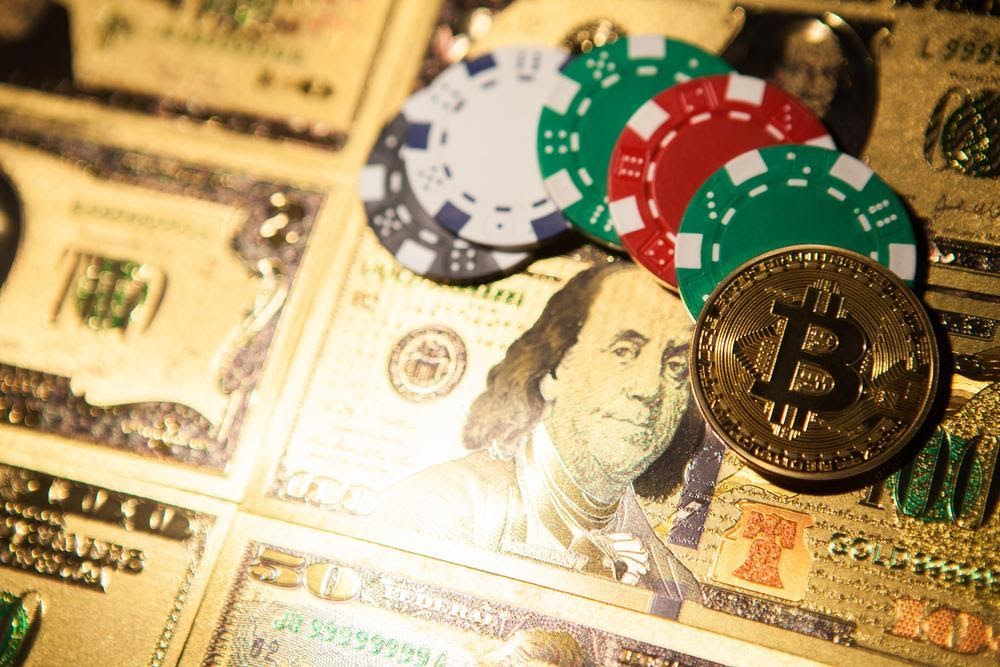
Blockchain technology is fast-changing the game for many existing industries. One of the sectors that seem to have embraced this nascent technology is the gaming industry, with Crypto Kitties being among the first blockchain-based games. Since then, this billion-dollar market has been aggressively tapping into the potential of blockchain technology to improve modern-day gaming ecosystems.
Currently, many blockchain innovation areas are being leveraged to improve the state of gaming. Some of the prominent and latest niches include Non-fungible tokens (NFTs) and Decentralized Finance (DeFi), both of which are now pivotal in developing blockchain-powered games.
With the global gaming market projected to hit $256.97 billion by 2025, blockchain technology will likely contribute significantly towards achieving this figure. According to the DappRadar 2020 blockchain gaming report, the daily activity on blockchain games grew by 35%, raising daily active users to 28,000 unique wallets.
That said, let's take a deeper look into five ways in which blockchain technology is changing how games are developed and played;
The Value Proposition on Blockchain in Gaming Ecosystems
1. Decentralized Gaming
Before the invention of blockchain, games were solely built on centralized infrastructures that expose gamers to systemic risks such as being controlled by one party. The debut of blockchain is now changing the gaming landscape as developers are shifting to build games on decentralized networks. Some of the popular blockchain networks on which game developers are building include Ethereum and EOS.
Decentralized ecosystems offer a significant value to the gaming industry as they introduce aspects such as verifiable scarcity, true ownership and decentralized governance. Ideally, games built on public and permissionless blockchain networks allow stakeholders to verify their legitimacy and leverage a Decentralized Autonomous Organization (DAO) to make decisions. This eliminates the need for central parties hence a decentralized gaming environment.
2. Non-Fungible Tokens (NFT) Gaming Platforms
Non-fungible Tokens (NFTs) are a buzz in the crypto world, gaining significant traction throughout the past year. This type of crypto token is indistinguishable by nature which means that each NFT is inherently unique. Given this feature, NFTs have become a building pillar for blockchain games as they enable gamers to trade in-game items such as skins, avatars and other collectibles.
Today, we have NFT platforms such as the Hoard Marketplace, which allow users to purchase, sell, rent or loan NFTs, including in-game items, domain names and digital art. This platform seeks to empower developers with Ethereum integration tools. In doing so, Hoard will expose its users to the DeFi market, where they can use their NFTs to lend, borrow or stake for network rewards.
The Hoard Marketplace is an example of how NFTs are gradually being integrated with the gaming industry. Gamers no longer have to hustle for in-game items as they can leverage this ecosystem to rent unique skins or avatars for occasions, creating an opportunity for NFT lenders as well.
3. DeFi Staking
DeFi is a burgeoning crypto niche with the total value locked (TVL) in DeFi protocols currently at $57.9 billion. This upcoming ecosystem relies on the support of many individuals who essentially run nodes or stake their crypto assets to sustain the decentralized nature of DeFi networks. In return, stakers are rewarded with native tokens, amongst other incentives featured by various projects.
As for its contribution to the gaming market, DeFi offers multiple staking options where NFT owners can earn passive income. Going back to the Hoard Marketplace example, the platform features a native token dubbed 'HRD', allowing users to provide liquidity across multiple decentralized exchanges. Furthermore, HRD token holders can stake their digital assets to earn Hoard network rewards.
4. eSports Betting/Online Gambling
The eSports betting industry also feels the blockchain wave as veterans and new entrants consider decentralized online gambling ecosystems. Some of the developments in this industry include using provably fair algorithms, which eliminate the need for third parties or the house. Instead, the outcome of the placed bets can be verified on-chain to prove that there was no tampering.
Popular blockchain-powered gambling casinos, which features several provably fair gaming categories. The gaming categories include randomly fair games, steady games and orbital games, all of which allow users to place a wager through various crypto assets, including BTC.
5. Play-to-Earn Gaming Models
Blockchain technology is also facilitating the introduction of new gaming models where players are incentivized with potential rewards. In most cases, the rewards are in the form of native tokens whose value proposition can be realized by trading for other in-game items or selling them as NFTs in the available marketplaces.
This model is currently being used by one of the most popular play-to-earn blockchain games, Axie Infinity. Just like Crypto Kitties, this game allows users to breed digital collectibles known as Axies. The Axie Infinity game incentivizes players to engage in adventure game modes and PVP to receive SLP tokens that they can use to breed their Axies.
Conclusion
The gaming industry is one of the fastest-growing industries in today's market, with over 2.5 billion people playing games globally. Its integration with blockchain technology may be the catalyst needed to take it to the next level. However, blockchain networks have to scale up real quick to accommodate this prospective market.
* This is a contributed article and this content does not necessarily represent the views of techtimes.com









